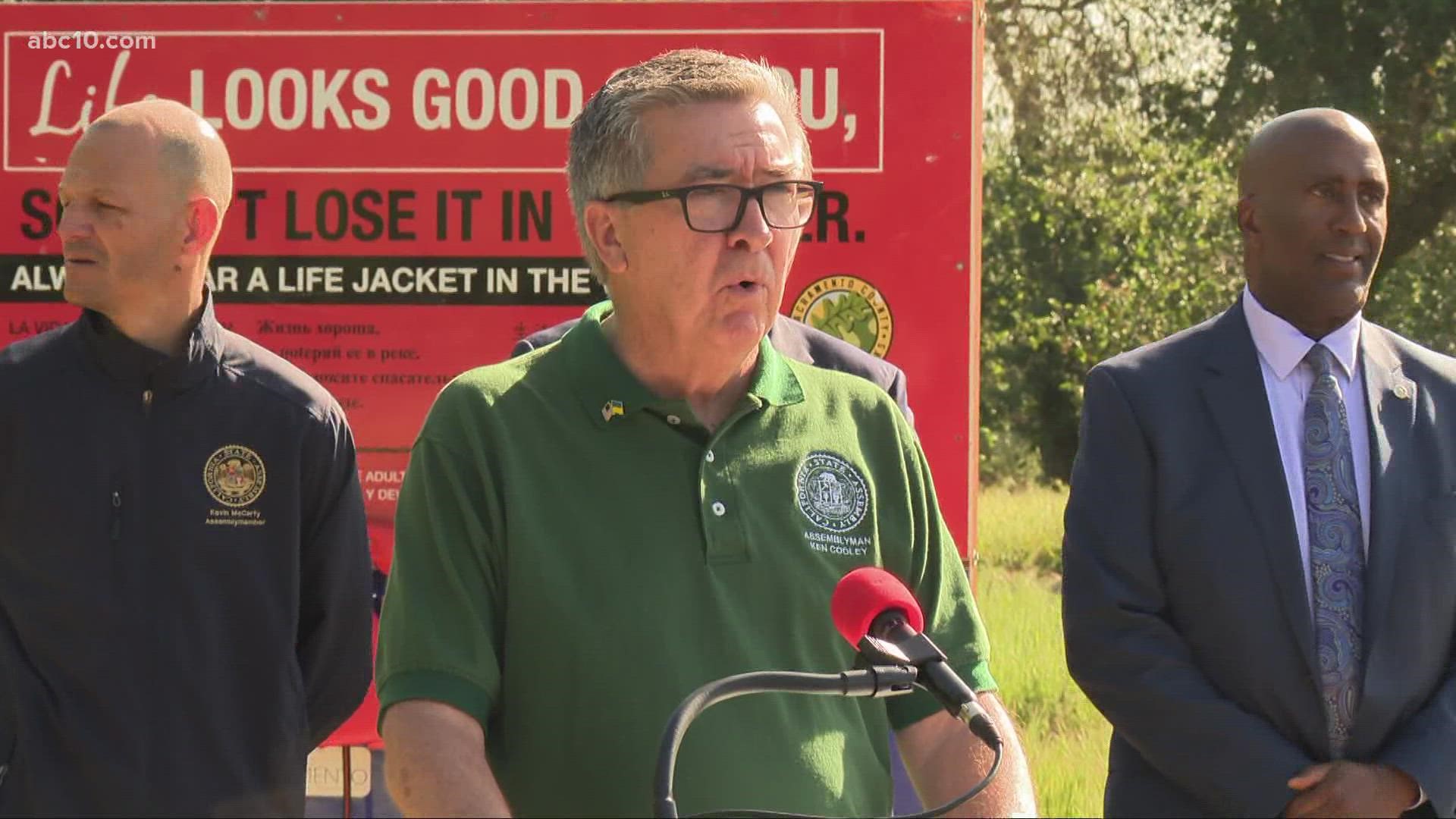SACRAMENTO, Calif. — Campsites along riverways and in parks in California are a common sight, but a new bill seeks to clear them out if it is a “special parkland.”
It won’t be an easy battle though. Homeless advocates are gearing up.
The center of Friday's press conference: 20-year-old Emma Roark who left her Rancho Cordova home on a walk on Jan. 27. Five days later investigators found her body in a secluded area near the American River tied up in a tent. Police say 37-year-old Mikilo Rawls raped and murdered Roark.
“This is where young Emma Rourke was brutally murdered,” Assemblymember Ken Cooley said.
In that spot, lawmakers said it was time to clear out homeless camps along special parklands.
“With COVID the past two years, a lot of folks are getting out, riding bikes and walking and they want to feel safe," Assemblymember Jim Cooper said. "And some folks don't feel safe. We've got to change that.”
"Special Parklands" are defined in the bill as “open spaces, and natural preserves that have a heightened risk of damage from wildfire or other significant environmental degradation due to the unique and valuable environmental, agricultural, scientific, educational, and recreational resources located therein.”
“It's not going to be easy because I guarantee you the advocates will come out and oppose it no matter what you do," Cooper said. "But someone has to be the adult in the room and make adult decisions.”
Anthony Prince, the statewide attorney for the California Homeless Union, is the one ready to fight it.
"These legislators, by introducing a bill like this, are tapping into the worst fears, the most prejudicial sentiments, the most divisive and lynch-mob-driven thinking that we've seen historically in this country, and we're not going to stand for it," Prince said.
Prince said the statistics paint a different story. Homeless people are killed at greater rates.
"We had 200 homeless people die in the city of Sacramento, in the county of Sacramento last year," he said. "Two hundred people died, are they not going to talk about that? Are those lives any less valuable, any less important than a person strolling along the river?"
He said because of an existing court case, Martin V. Boise, the bill is illegal. The ruling, in that case, held that cities cannot enforce anti-camping ordinances if they do not have enough homeless shelter beds available for their homeless population.
"We have these rights, we're not going to have them taken from us without a fight," Prince said.
Assemblymember Ken Cooley acknowledged the legal challenge, which is why he said he’s also proposing a $50 million grant program that cities and counties can apply for in order to help with these issues.
The bill will be heard in its first committee at the end of the month.



















